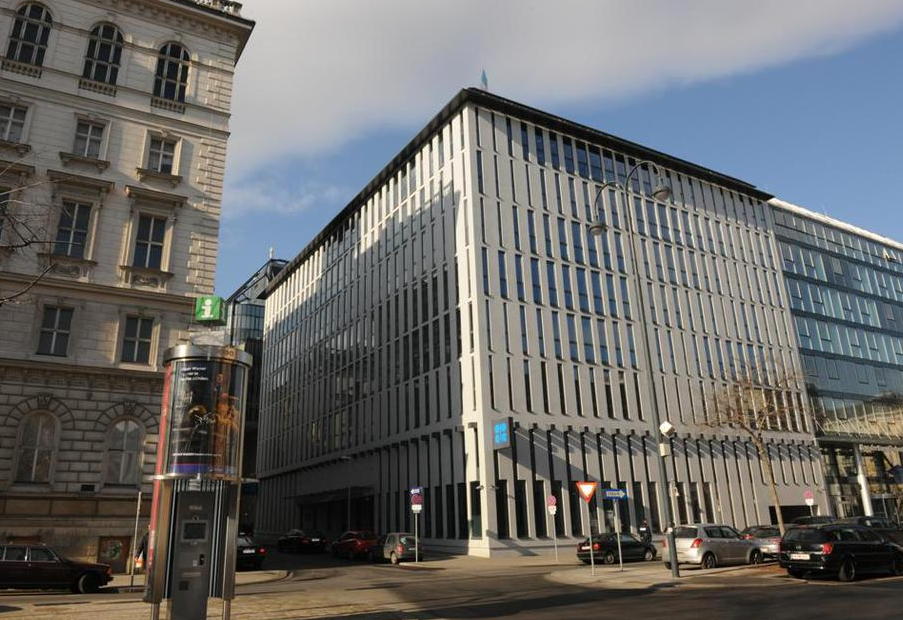
OPEC’s internal disagreements over how to implement oil-supply cuts agreed to last month prevented a deal to secure the cooperation of other major suppliers.
More than 18 hours of talks over two days in Vienna yielded little more than a promise that the world’s largest oil producers would keep on talking. Discussions will continue in late November, just days before the Organization of Petroleum Exporting Countries is supposed to finalize the accord that lifted oil prices to one-year highs.
Non-OPEC nations ended talks with the group on Saturday without making any supply commitments, Brazil’s Oil and Gas Secretary Marcio Felix said after the meeting. Brazil won’t restrict its oil production, though it’s willing as early as next year to host future OPEC conferences with the world’s biggest producers, he said in a phone interview.
Azerbaijan’s Energy Minister Natiq Aliyev said the outcome of the process hinges on Iran and Iraq, two nations that are more interested in increasing production than reducing it. While Saturday’s meeting was a successful “first step,” oil-producing nations need to continue dialog and “come up with real numbers” before cuts can begin, Kazakhstan’s Deputy Energy Minister Magzum Mirzagaliyev said in an interview after the meeting.
A deal wasn’t possible because internal OPEC talks on Friday reached an impasse over the role of Iran and Iraq, both of which want to be exempt from any cuts. While non-member Oman said Saturday it was willing to cooperate in a supply deal, it couldn’t commit to a specific output cut until OPEC had its own agreement.
OPEC’s surprise agreement in Algiers to make the first supply cuts in eight years will only make a serious dent in a record oil surplus if producers outside the group join in. While the accord helped push oil prices to a 15-month high above $50 a barrel earlier this month, they have subsequently fallen as several members disputed the production estimates that would determine the size of cuts. Failure to implement last month’s accord will hurt oil producers, the organization’s top official warned.
“It’s more likely that OPEC will come away with no decision in November than that they’ll reach an agreement,’’ Fabio Scacciavillani, chief economist at the Oman Investment Fund, said in an interview in Dubai on Sunday. “If they are able to agree, it will likely be a wishy-washy deal that’s hobbled by too many exemptions.’’
OPEC agreed in the Algerian capital on Sept. 28 to reduce output to a range of 32.5 million to 33 million barrels a day, compared with about 33.4 million in September. Friday’s meeting of technical experts from members of the group was intended to finalize details of how those supply curbs would be shared. Talks with non-OPEC nations on Saturday sought to seek wider participation in cuts.
On Saturday, no concrete output limits for non-OPEC countries were discussed, two participants said. Attendees did discuss differences between nations’ own oil-production data and sources used in OPEC’s own estimates, which have been disputed by members including Iran, Iraq and Venezuela, one of the people said.
Russia reiterated that it is willing to freeze production, rather than cut, but only if there is an internal OPEC agreement first, the people said. The largest producer outside OPEC is pumping at a post-Soviet record of about 11.1 million barrels a day.
As the meeting opened in Vienna, OPEC Secretary-General Mohammed Barkindo warned of the consequences if producers don’t follow through on the Algiers agreement. The price recovery has already taken far too long and producers can’t risk delaying it further, he said.
Representatives of Azerbaijan, Brazil, Kazakhstan, Mexico, Oman and Russia attended Saturday’s meeting with officials from OPEC member states. Those countries collectively produced about 19.6 million barrels a day of oil last year, about 21 percent of global supply and equivalent to half of OPEC’s output, according to BP Plc’s Statistical Review of World Energy.
Oman is willing to cut production as part of a deal with other producers, but is waiting for OPEC to reach an internal agreement before deciding on the size of its own supply reduction, said Ali al Riyami, the nation’s representative at the meeting in Vienna. The Middle Eastern nation pumped about 1 million barrels a day in May.
Brazil attended the talks only as an observer, Felix said before the meeting. The Latin American country will boost output by 290,000 barrels a day next year to 2.9 million a day, the biggest increase of any non-OPEC nation, according to the International Energy Agency. Production will keep growing for the next few years, Felix said.
“Brazil’s output is decided by publicly traded companies,” he said. “There is nothing the government can do about it.’
Kazakhstan also plans to boost output next year following the restart this month of the $50 billion Kashagan oil field after 16 years of development. The field is currently pumping about 100,000 barrels day, which should rise to 200,000 by year-end and 370,000 by the end of 2017, Italian oil company Eni SpA said Friday.
“The Kashagan launch is a huge deal for us and we are not ready to abandon it, we are not planning that,” said Mirzagaliyev, the nation’s deputy energy minister.